Lucretius Philosophy Quotes & Sayings
Enjoy reading and share 8 famous quotes about Lucretius Philosophy with everyone.
Top Lucretius Philosophy Quotes
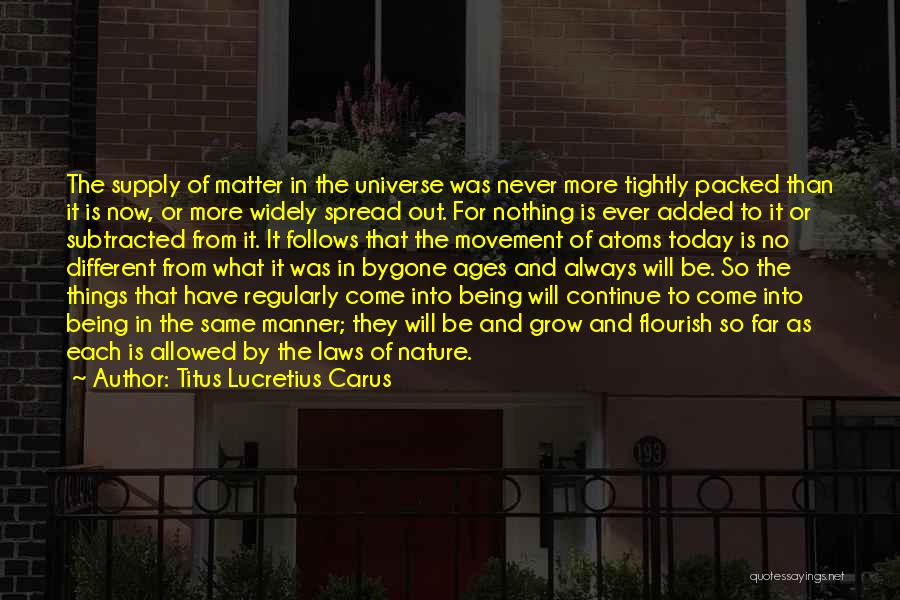
The supply of matter in the universe was never more tightly packed than it is now, or more widely spread out. For nothing is ever added to it or subtracted from it. It follows that the movement of atoms today is no different from what it was in bygone ages and always will be. So the things that have regularly come into being will continue to come into being in the same manner; they will be and grow and flourish so far as each is allowed by the laws of nature. — Titus Lucretius Carus

The vivid force of his mind prevailed, and he fared forth far beyond the flaming ramparts of the heavens and traversed the boundless universe in thought and mind. — Titus Lucretius Carus
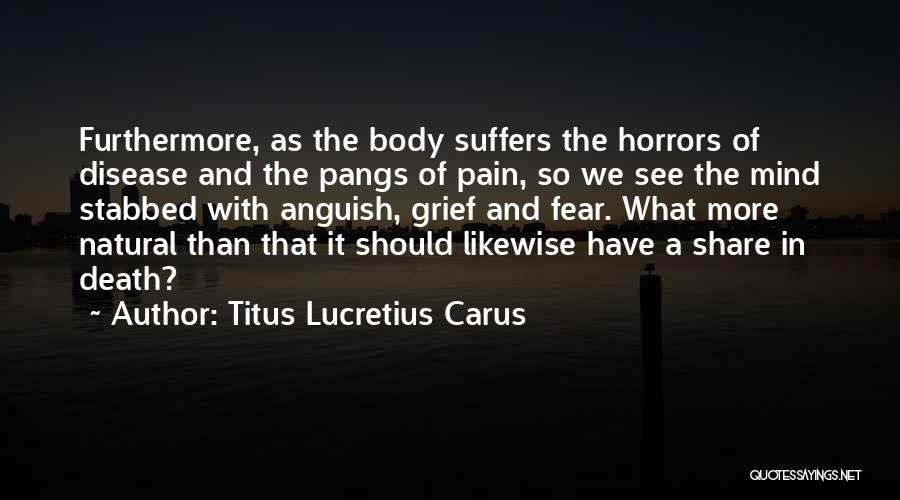
Furthermore, as the body suffers the horrors of disease and the pangs of pain, so we see the mind stabbed with anguish, grief and fear. What more natural than that it should likewise have a share in death? — Titus Lucretius Carus
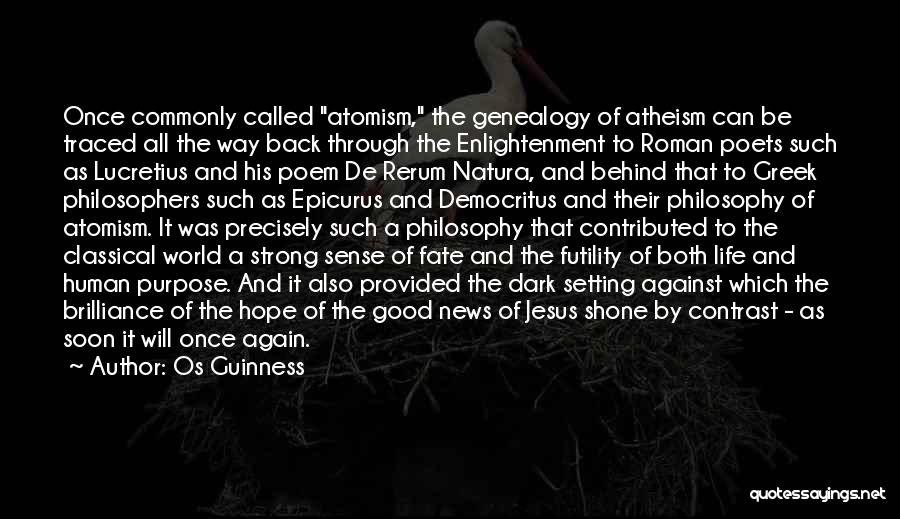
Once commonly called "atomism," the genealogy of atheism can be traced all the way back through the Enlightenment to Roman poets such as Lucretius and his poem De Rerum Natura, and behind that to Greek philosophers such as Epicurus and Democritus and their philosophy of atomism. It was precisely such a philosophy that contributed to the classical world a strong sense of fate and the futility of both life and human purpose. And it also provided the dark setting against which the brilliance of the hope of the good news of Jesus shone by contrast - as soon it will once again. — Os Guinness

A man leaves his great house because he's bored
With life at home, and suddenly returns,
Finding himself no happier abroad.
He rushes off to his villa driving like mad,
You'ld think he's going to a house on fire,
And yawns before he's put his foot inside,
Or falls asleep and seeks oblivion,
Or even rushes back to town again.
So each man flies from himself (vain hope, because
It clings to him the more closely against his will)
And hates himself because he is sick in mind
And does not know the cause of his disease. — Titus Lucretius Carus
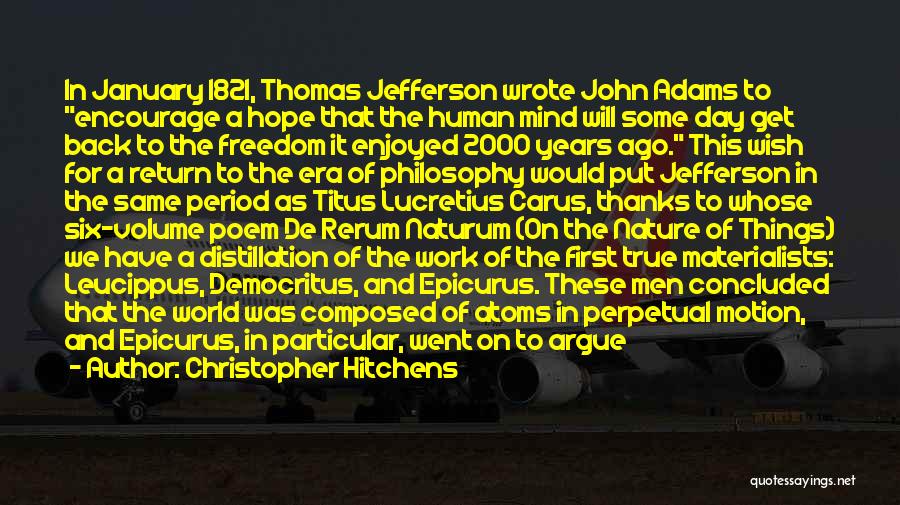
In January 1821, Thomas Jefferson wrote John Adams to "encourage a hope that the human mind will some day get back to the freedom it enjoyed 2000 years ago." This wish for a return to the era of philosophy would put Jefferson in the same period as Titus Lucretius Carus, thanks to whose six-volume poem De Rerum Naturum (On the Nature of Things) we have a distillation of the work of the first true materialists: Leucippus, Democritus, and Epicurus. These men concluded that the world was composed of atoms in perpetual motion, and Epicurus, in particular, went on to argue that the gods, if they existed, played no part in human affairs. It followed that events like thunderstorms were natural and not supernatural, that ceremonies of worship and propitiation were a waste of time, and that there was nothing to be feared in death. — Christopher Hitchens
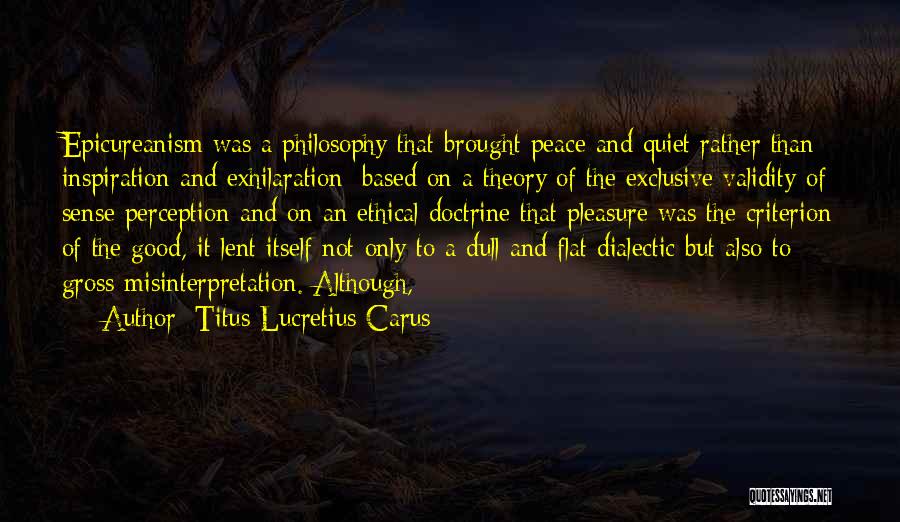
Epicureanism was a philosophy that brought peace and quiet rather than inspiration and exhilaration; based on a theory of the exclusive validity of sense perception and on an ethical doctrine that pleasure was the criterion of the good, it lent itself not only to a dull and flat dialectic but also to gross misinterpretation. Although, — Titus Lucretius Carus

Human beings, Lucretius thought, must not drink in the poisonous belief that their souls are only part of the world temporarily and they are heading somewhere else. That belief will only spawn in them a destructive relation to the environment in which they live the only lives they have. — Stephen Greenblatt





